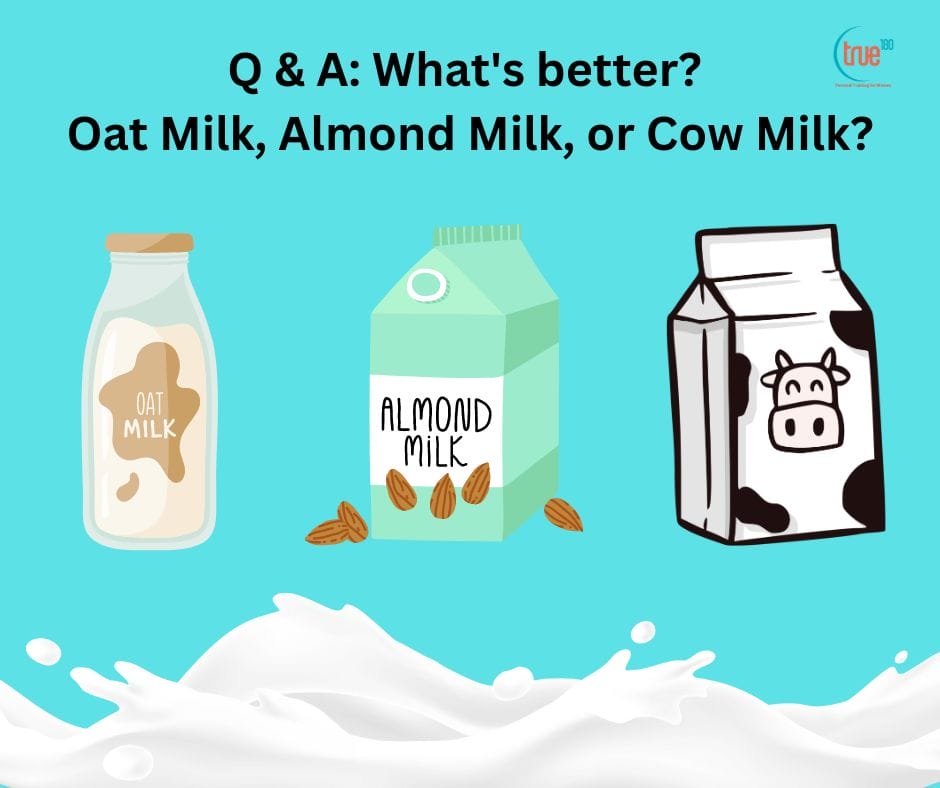Ever wonder which milk is best for your protein shake? We have! Check out the most recent
Q & A – ->
Q & A: What’s better? Oat Milk, Almond Milk or Cow Milk? For lunch I have a shake with protein powder, kale, banana, 1/4 of an avocado, cacao and a cup of skim milk. My daughter uses oat milk instead, and I’ve read about almond milk as a choice. What do you say? Is one of these milks better?
A: Great question. It depends on what you mean by “better,” but for most people – especially women – the best option is the lowest calorie option.
And for “milk”-type foods the second most important factor is protein content.
Here’s a quick breakdown and one option I added.
- (1 cup) Skim: 80 cal and 8 grams protein
- (1 cup) Almond: 40 cal and 1.5 grams protein
- (1 cup) Oat: 120 cal and 2 grams protein
- (1/2 cup) Fat free Greek yogurt: 65 cal and 11.5 grams protein
#3 (Oat Milk) is the loser on everything – high calories and low protein, so I would avoid that one.
#2 and #4 are the lowest calorie options, so these are potentially great since you have protein powder in your shake.
#1 & #4 win the protein race.
The Winner
So, the winner is option D (fat-free Greek yogurt) for your “milk.” It works very well as the milk or creaminess component of a shake, and is low in calories and high in protein. It also has a good dose of calcium as well. You’ll want to add just enough water to achieve the consistency you like.
Lastly, I would suggest replacing the 1/4 avocado with the yogurt. The 1/4 avocado is 80-100 calories of fat with little to no protein. The fat does add creaminess and richness to the shake, but a frozen banana and the extra protein from the yogurt should be comparable while cutting calories and boosting protein.
One Caveat
One potential issue with the above winner is lactose. Yogurt is much lower in lactose than milk because the bacteria that convert the milk to yogurt eat much of the lactose. However, even the low levels of lactose in yogurt can be an issue for some people. In this case I would try Fairlife fat-free milk as it is both lactose-free, and higher in protein than regular milk. It will give you 13 grams of protein for just 80 calories.
Enjoy!
PS – Have you found us on Instagram?

